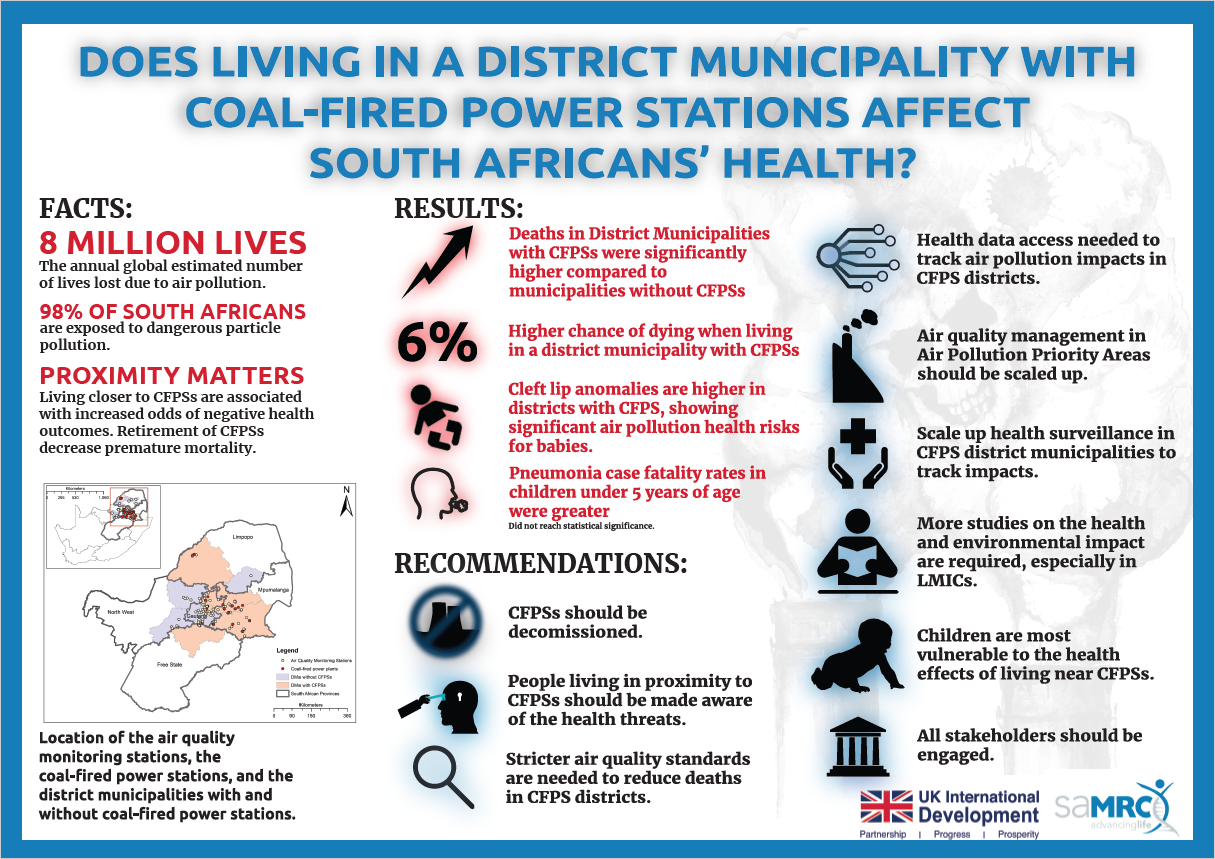The significant impact on human health from living near coal-fired power stations in South Africa – an air pollution crisis
 Individuals living near coal-fired power stations face an increased risk of respiratory diseases and premature death, a study by the South African Medical Research Council has found.
Individuals living near coal-fired power stations face an increased risk of respiratory diseases and premature death, a study by the South African Medical Research Council has found.
People living in district municipalities with coal-fired power stations are at a 6% higher risk of experiencing health impacts caused by air pollution compared to those living in district municipalities without coal-fired power stations. Cardiovascular diseases are a major cause for concern in these areas. Children under five are particularly vulnerable, as there is a direct increase in pneumonia cases with every ten parts per billion rise in nitrogen dioxide and sulphur dioxide levels. Some babies are affected before birth, with higher cases of cleft lip and palate anomalies in areas with coal-fired power stations.
“Analysis of air quality data from the South African Air Quality Information System and health data from Statistics South Africa and the National Department of Health reinforces the link between air pollution and health impacts. The study further confirms that air pollution increases hospital visits, particularly for respiratory diseases such as chronic obstructive pulmonary disease and tuberculosis,” said Prof Caradee Wright, Chief Specialist Scientist leading the Climate Change and Health Research Programme.
The study, titled “Estimating the health impacts from living in district municipalities with and without coal-fired power stations in South Africa”, recommends that coal-fired power stations should be phased out and replaced with renewable energy sources such as solar, wind and hydropower to eliminate health risks, but acknowledges the difficulties of this transition in a country like South Africa with high levels of poverty. However, a transition to cleaner energy sources would significantly benefit the health and well-being of children living near these high-risk areas.
It further recommends that air quality regulations must be strengthened to implement South Africa’s National Air Quality Standards more rigorously and prevent illness and premature deaths.
Other recommendations include informing communities near coal-fired power stations of the severe health risks they face. Health surveillance must be improved to monitor pollution-related illnesses in affected regions, tracking and addressing health impacts effectively.
Continued studies are needed, particularly in lower-middle-income countries, to provide strong evidence for policy change and advocacy.
This study was funded by the British High Commission in Pretoria.
FOR EDITORS
You may view highlighted findings here. A report on the study is also set to be published soon.
For media inquiries, please contact:


